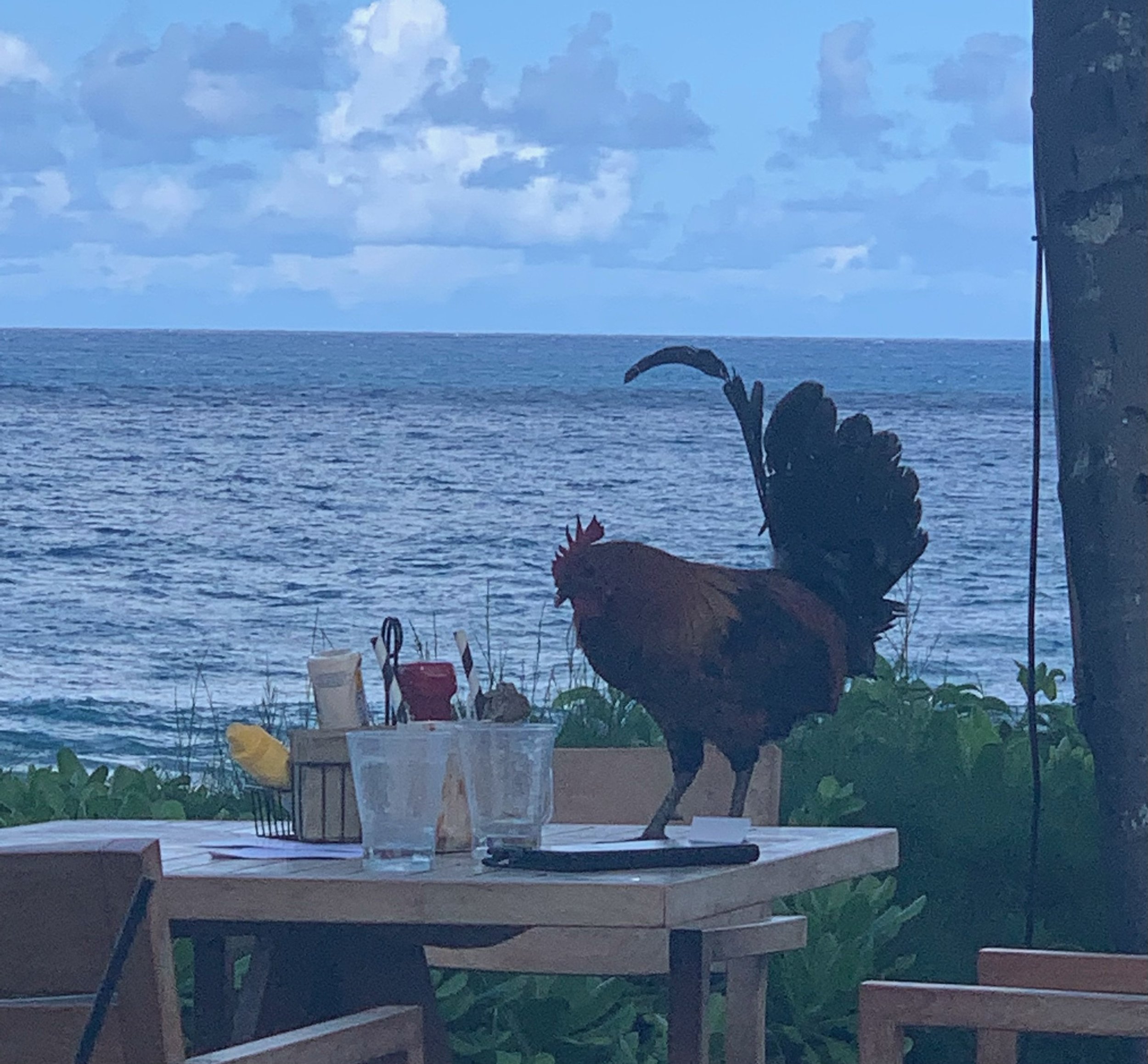Vacation Mind
I recently returned from a lovely vacation in Hawaii, and I’m pondering how to access “vacation mind” in my everyday life. A big part of what makes vacations special is how much more attentive and present we are when everything is new and fresh, versus “ordinary” and routine. There’s also the power of intention—we consciously approach vacationing as a time to relax, enjoy, connect, and be more spontaneous. And for me, knowing that vacation is temporary and will soon be over inspires me to embrace every day more wholeheartedly.
Myra’s view from an outdoor cafe in Maui
This vacation felt particularly restorative because it was the first time in more than eight years that I left my laptop at home and didn’t bring any work with me. Instead of starting my days looking at a screen and scrolling through emails, I got back in bed with a delicious cup of green tea and a wisdom-filled book by my Zen teacher, Katherine Thanas, The Truth of This Life—Zen Teaching on Loving the World as It Is. Each morning, I opened the book to a random page, trusting that those particular words were the ones meant for me. I read slowly, letting the teachings sink in without any hurry.
Katherine, who passed away ten years ago, was someone who brought “vacation mind” to all things. She paid full attention to the “ordinary” with a reverence that most of us reserve for those things we deem extraordinary.
One of the main things that drew me to Katherine’s Zen talks week after week was the expressiveness of her hands. I was mesmerized watching them move slowly, attentively, and with obvious respect, no matter what she was doing —arranging her robes, lighting incense, unfolding the fabric that held her papers.
A student always brought Katherine a cup of tea before she began her talk, and before she took her first sip, she’d spend time inspecting the cup, looking at it from a few different angles, paying attention to how it felt in her hands. Just watching her in action calmed my nervous system and modeled a way of moving through the world that I sensed could be the antidote for my perennial urgent rush.
In The Truth of This Life, Katherine explains the power of being fully aware of the transitory nature of life. “To be willing to be in the present moment you have to know in your own body that life is passing quickly, that we’re all going to die. This is called the truth of impermanence.” She also wrote, “It may be that fulfillment simply means active presence in our lives, the patience to be in this moment, not hurtling past the events in our lives, but touching the ground with each step.”
Myra and Katherine with Myra’s children, circa 1999
My wise father, Mendek Rubin, also lived his life in this conscious manner. “Presence is where peace lives,” he wrote. “It doesn’t matter what I’m doing. Nothing is too small or unimportant. Making oatmeal is my meditation. Folding laundry is my meditation. Mending holes in my socks is my meditation. When I am fully present, there’s a shift in my frequency that enables me to access a new way of seeing the world.”
The way my father approached life modeled that happiness is less determined by what we do as it is by how we do things. Because he lived in a state of presence, patience, gratitude and appreciation, he brought joy with him wherever he went.
So it is in the spirit of fully embracing the magic of the “ordinary” that we’re sharing an 80-second Take a Moment micro-meditation called “Tiny Treasures.” Enjoy!




